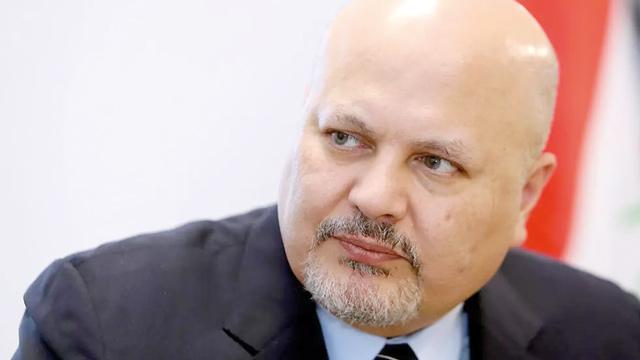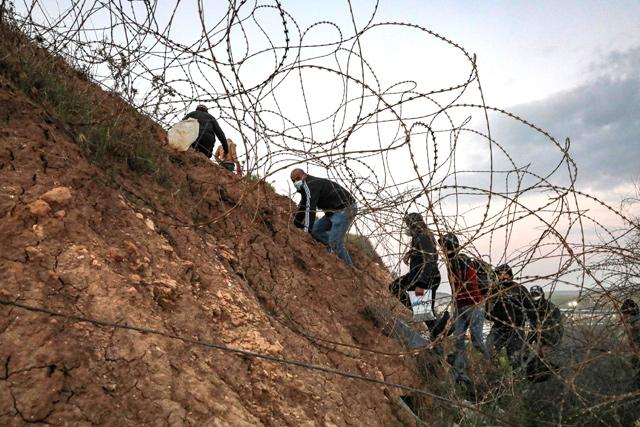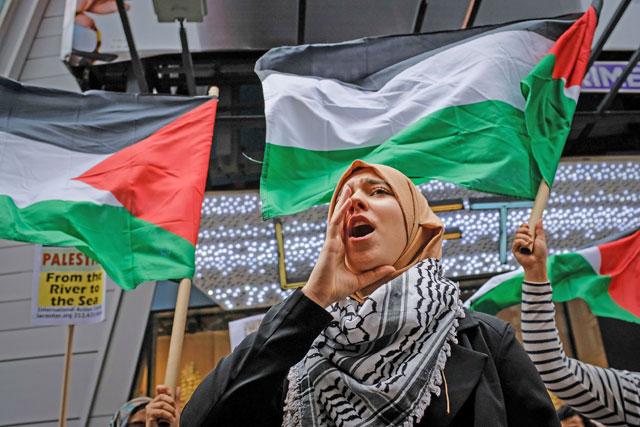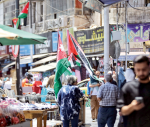You are here
New ICC prosecutor vows to ‘revive’ troubled tribunal
By AFP - Jun 16,2021 - Last updated at Jun 16,2021

Karim Khan, a 51-year-old former defence lawyer, inherits a bulging file of tough cases (AFP photo)
THE HAGUE — Britain’s Karim Khan was sworn in on Wednesday as the new prosecutor of the International Criminal Court (ICC) with a promise to “revive” the troubled tribunal after a string of high-profile failures.
Khan, who inherits a bulging file of tough cases including in the Palestinian territories, Afghanistan and the Philippines, lamented that The Hague-based ICC had previously achieved “so little so often” in terms of convictions.
The remarks by the 51-year-old former defence lawyer come after outgoing prosecutor Fatou Bensouda was criticised for a string of setbacks including the acquittal of former Ivory Coast president Laurent Gbagbo.
Khan said he wanted to “build upon the solid ground” left by Bensouda “but also to repair what is broken, to rejuvenate, to revive in the quest for greater efficiency and greater impact”.
“We have to perform in trial. We cannot invest so much, we cannot raise expectations so high, and achieve so little so often in the courtroom,” Khan said in a speech after being sworn in.
Khan was elected by ICC member states in February to serve a nine-year tenure, as only the third prosecutor at the world’s only permanent war crimes court since it launched in 2002.
ICC Chief Judge Piotr Hofmanski said during the swearing-in ceremony that being prosecutor was a “tough job” but hailed Khan’s “outstanding credentials”.
‘Horrors of mankind’
Khan previously led a special UN probe into crimes by the Daesh extremist group and, more controversially, also represented late Libyan leader Muammar Qadhafi’s son Seif Al Islam at the ICC.
His immediate challenges in his new job include a probe into the Philippines war on drugs that Bensouda announced in her final days in office, and decisions on probes in Ukraine and Nigeria.
But the most politically sensitive hurdles will be the investigations that Bensouda opened into alleged US war crimes in Afghanistan, and into the 2014 Israel-Palestinian conflict in Gaza.
The administration of US President Donald Trump hit Bensouda with sanctions over the two cases, and while they have now been lifted, relations with non-ICC member states like Israel and the US remain testy.
Khan held out an olive branch on Wednesday to countries that are not part of the court, which also include Russia, China and Myanmar, saying that “I wish to include you in my engagement in this joint quest for justice”.
However he swore that as ICC prosecutor, a role that involves opening investigations and deciding on charges to bring before the court, “without fear or favour”.
“It is an awful testament to the horrors of mankind that in this 21st century, as we send rovers to Mars... medieval crimes are being committed by modern people,” Khan said in his speech.
Khan also said ending gender and geographical imbalance in his office was an “urgent operational priority”.
‘Critical phase’
The ICC was set up nearly two decades ago as a full-time successor to the Nuremberg trials of Nazi war criminals and several separate international tribunals into situations such as the former Yugoslavia.
But it has long faced criticism on a number of fronts, ranging from alleged bias, its initial focus on cases involving Africa, the large pay packets for judges and the length of time taken to bring suspects to justice.
“The ICC is in a crucial phase, it has faced criticism for not being as effective as states have wished,” Carsten Stahn, international criminal law professor at the University of Leiden in the Netherlands, told AFP.
Bensouda had a number of setbacks with, Gbagbo being cleared of crimes against humanity, while former Democratic Republic of the Congo vice president Jean-Pierre Bemba was acquitted on appeal, and Kenyan President Uhuru Kenyatta had charges against him dropped.
But she recently secured high-profile convictions against Ugandan child soldier-turned-Lord’s Resistance Army commander Dominic Ongwen and Congolese warlord Bosco “Terminator” Ntaganda.
In her farewell statement, Bensouda said that she had “made my decisions, with careful deliberation — but without fear or favour. Even in the face of adversity. Even at considerable personal cost”.
“Fatou’s legacy will be viewed positively. She took very courageous decisions,” Matthew Cannock, head of Amnesty’s Centre for International Justice, told AFP.
Related Articles
RAMALLAH, Palestinian Territories — The Palestinian government on Monday said Israel had stripped its foreign minister of a travel permit af
THE HAGUE — The chief prosecutor of the International Criminal Court said Wednesday that she had opened a formal probe into alleged crimes i
THE HAGUE — Palestinian foreign minister Riyad Al Maliki was to arrive in The Netherlands later on Monday ahead of talks with the chie

















